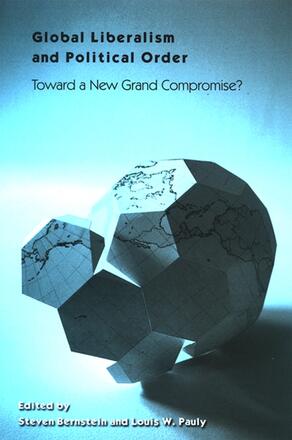
Global Liberalism and Political Order
Toward a New Grand Compromise?
Alternative formats available from:
Examines the possibilities of global governance in the wake of the challenges of globalization.
Description
Many years ago, John Gerard Ruggie coined the phrase "embedded liberalism" to describe the grand post-1945 political compromise between free-market liberalism and domestic political interventionism that stabilized the multilateral economic order. In Global Liberalism and Political Order, leading scholars of political economy and international relations assess the challenges facing today's increasingly interdependent world as globalization redefines the old political order. They address the unraveling and/or reinvention of a grand compromise in global governance from a variety of theoretical perspectives and issue areas, including trade, finance, networked governance, North-South relations, and the environment. Focusing on the foundations of political authority at the global level, the contributors imagine the implications of success or failure for international economic order and political stability. Ruggie, whose work inspired many of this book's scholars, contributes a chapter on the prospects for a new global—as opposed to international—grand bargain.
Steven Bernstein is Associate Professor of Political Science at the University of Toronto and the author of The Compromise of Liberal Environmentalism. Louis W. Pauly is Canada Research Chair in Globalization and Governance and Professor of Political Science at the University of Toronto. He is the author and editor of many books, including Complex Sovereignty: Reconstituting Political Authority in the Twenty-First Century (coedited with Edgar Grande).
Reviews
"…this book clearly succeeds in its goal of providing an overview of new thinking about one of the most influential ideas in international relations theory. " — Political Studies Review
"This empirical and conceptual exploration of the possibilities of a new 'grand compromise' offers a very fresh perspective on today's world order that readers will find welcome. The contributors have made a substantial contribution to our understanding of the dilemmas of the contemporary world order. " — Timothy J. Sinclair, author of The New Masters of Capital: American Bond Rating Agencies and the Politics of Creditworthiness